
Bouldering is a form of free climbing that is performed on small rock formations or artificial rock walls without the use of ropes or harnesses. While bouldering can be done without any equipment, most climbers use climbing shoes to help secure footholds, chalk to keep their hands dry and to provide a firmer grip, and bouldering mats to prevent injuries from falls. Unlike free solo climbing, which is also performed without ropes, bouldering problems are usually less than six metres (20 ft) tall. Traverses, which are a form of boulder problem, require the climber to climb horizontally from one end to another. Artificial climbing walls allow boulderers to climb indoors in areas without natural boulders. In addition, bouldering competitions take place in both indoor and outdoor settings.

Orienteering is a group of sports that involve using a map and compass to navigate from point to point in diverse and usually unfamiliar terrain whilst moving at speed. Participants are given a topographical map, usually a specially prepared orienteering map, which they use to find control points. Originally a training exercise in land navigation for military officers, orienteering has developed many variations. Among these, the oldest and the most popular is foot orienteering. For the purposes of this article, foot orienteering serves as a point of departure for discussion of all other variations, but almost any sport that involves racing against a clock and requires navigation with a map is a type of orienteering.

Many climbing routes have a grade that reflects the technical difficulty—and in some cases the risks and commitment level—of the route. The first ascensionist can suggest a grade, but it will be amended to reflect the consensus view of subsequent ascents. While many countries with a strong tradition of climbing developed grading systems, a small number of grading systems have become internationally dominant for each type of climbing, which has contributed to the standardization of grades worldwide. Over the years, grades have consistently risen in all forms of climbing, helped by improvements in climbing technique and equipment.
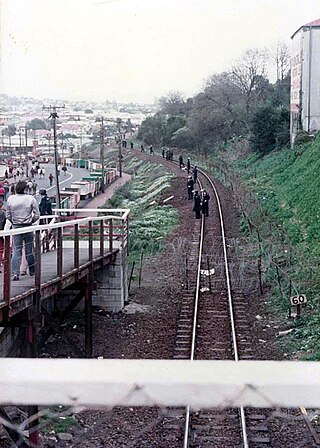
The 1981 South African rugby tour polarised opinions and inspired widespread protests across New Zealand. The controversy also extended to the United States, where the South African rugby team continued their tour after departing New Zealand.

Spark New Zealand Limited is a New Zealand telecommunications and digital services company providing fixed-line telephone services, mobile phone services, broadband, and digital technology services including cloud, security, digital transformation, and managed services. Its customers range from consumers to small - medium business, government agencies and large enterprise clients. It was formerly known as Telecom New Zealand until it was rebranded to Spark in 2014. It has operated as a publicly traded company since 1990. Spark's mobile network reaches 98% of New Zealand, with over 2.5 million mobile connections and 704,000 broadband connections

Adventure racing is typically a multidisciplinary team sport involving navigation over an unmarked wilderness course with races extending anywhere from two hours up to two weeks in length. Some races offer solo competitions as well. The principal disciplines in adventure racing include trekking, mountain biking, and paddling although races can incorporate a multitude of other disciplines including climbing, abseiling, horse riding, skiing and white water rafting. Teams generally vary in gender mix and in size from two to five competitors, however, the premier format is considered to be mixed-gender teams of four racers. There is typically no suspension of the clock during races, irrespective of length; elapsed competition time runs concurrently with real-time, and competitors must choose if or when to rest.

Sport climbing is a type of free climbing in rock climbing where the lead climber clips into pre-drilled permanent bolts for their protection while ascending a route. Sport climbing differs from the riskier traditional climbing where the lead climber has to insert temporary protection equipment while ascending.
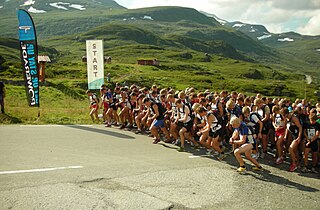
Fell running, also sometimes known as hill running, is the sport of running and racing, off-road, over upland country where the gradient climbed is a significant component of the difficulty. The name arises from the origins of the English sport on the fells of northern Britain, especially those in the Lake District. It has elements of trail running, cross country and mountain running, but is also distinct from those disciplines.

Little Barrier Island, or Hauturu in Māori, lies off the northeastern coast of New Zealand's North Island. Located 80 kilometres (50 mi) to the north of Auckland, the island is separated from the mainland to the west by Jellicoe Channel, and from the larger Great Barrier Island to the east by Cradock Channel. The two aptly named islands shelter the Hauraki Gulf from many of the storms of the Pacific Ocean.

Sport in New Zealand largely reflects the nation's colonial heritage, with some of the most popular sports being rugby union, rugby league, cricket, association football, basketball, horse racing and netball, which are primarily played in Commonwealth countries. New Zealand has enjoyed success in many sports, notably rugby union, rugby league, cricket, America's Cup sailing, world championship and Olympics events, and motorsport.

Rugby league in New Zealand dates to the beginning of the sport in England. New Zealand played an integral role in the history of rugby league football. Of all rugby league nations New Zealand was second only to England to compete in international competition.
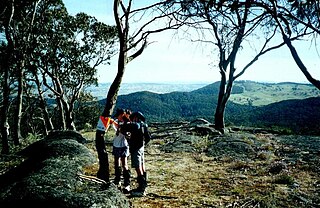
Rogaining is an orienteering sport of long distance cross-country navigation, involving both route planning and navigation between checkpoints using a variety of map types. In a rogaine, teams of two to five people choose which checkpoints to visit within a time limit with the intent of maximising their score. Teamwork, endurance, competition and an appreciation for the natural environment are features of the sport. Championship rogaines are 24 hours long, but rogaines can be as short as two hours.

Massey High School is a co-educational state secondary school in West Auckland, New Zealand established in 1969. The school is located on the western edge of the city, thus obtaining students from both suburban and rural backgrounds. In 2017 it was rated decile 4.
The IFSC Climbing World Championships are the biennial world championship event for competition climbing that is organized by the International Federation of Sport Climbing (IFSC). This event determines the male and female world champions in the three disciplines of competition climbing: competition lead climbing, competition bouldering, and competition speed climbing. Since 2012, a combined ranking is also determined, for climbers competing in all disciplines, and additional medals are awarded based on that ranking. The first event was organized in Frankfurt in 1991.
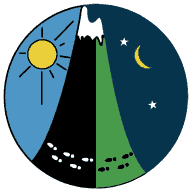
International Rogaining Federation (IRF) is the peak international body for the sport of rogaining. The aims of the IRF are to promote rogaining worldwide, maintain the culture and the rules of the sport.
Campbell Grayson is a New Zealand retired professional squash player. He reached a career-high world ranking of World No. 24 in February 2020.
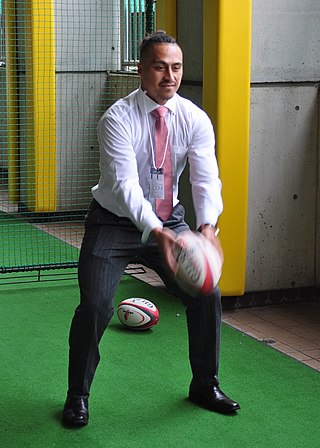
Jason Emery is a New Zealand rugby union player who represents the Sunwolves in Super Rugby, as well as for Manawatu in the Mitre 10 Cup. He also plays for Rugby New York (Ironworkers) in Major League Rugby (MLR) in the United States. His position of choice is centre.

USA Climbing is the national governing body of the sport of competition climbing in the United States. As a 501(c)3 non-profit, they promote Sport Climbing which comprises three competition disciplines: bouldering, lead climbing, and speed climbing, in elite, youth and collegiate formats.
South African National Climbing Federation(SANCF) is the governing body for competition climbing, involving competition lead climbing, competition bouldering and competition speed climbing in South Africa. SANCF oversees competitive climbing across the country as well as the promotion and development of the sport in artificial climbing environments. SANCF is affiliated to the world body International Federation of Sport Climbing (IFSC) with full member status, and SASCOC.
Rock climbing in New Zealand, as a sport in its own right, emerged in the late 1960s and early 1970s. While it has been practiced at least since the late 1800s it was largely considered as training for mountaineering. But by 1968 the first dedicated rock climbing guide had been published by the University of Canterbury tramping club, and the following decade saw a rapid improvement in standards and the introduction of new technologies and approaches including the bolting of routes that paved the way for sport climbing to emerge as an alternative to traditional route protection. Pursuit of trad climbing, sport climbing and bouldering all began developing their distinct trajectories separate from each other and from mountaineering.















